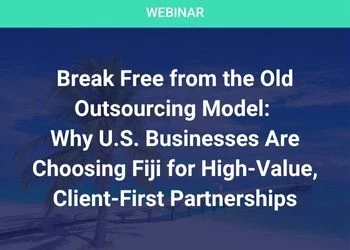Protecting Intellectual Property Rights throughout an Outsourcing / Shared Services Project
Add bookmarkImagine for a moment you’ve been receiving outsourced services for a number of years and are now reaching the end of the contract term. Rather than renew, you’d prefer to switch to an alternative supplier, or at least explore the market.
How will you ensure that the next supplier is able to use the Intellectual Property (IP) rights built up over the last few years whilst the project has been running? How do you make sure that you continue to own the IP in the project? What about inventions or know-how contributed by the outsourcing provider? What rights do you have in respect of these? Can you really afford to lose these rights if you switch provider?
If these issues are not considered at the start of the contract, any uncertainty plays into the hands of the incumbent supplier who could be reluctant to licence rights to a competitor and could exploit any ambiguity in the drafting to make it more difficult (and expensive) for a competitor to bid for the next contract term.
This article will look at the types of arrangement where IP is shared and what provisions these should have to deal with shared IP.
What IP rights are typically involved?
Outsourcing and shared services arrangements inevitably involve the creation of and use of a variety of IP rights. Typical examples would be patents or know-how relating to technology, products or processes required to provide the services, copyright in software, manuals, publications or reports produced or used in the services and confidential information including know-how or commercial trade information that a supplier may be exposed to during the course of the services.
Looking at the typical issues
As a potential contributor of intellectual property rights and confidential information, it is important to identify and protect any IP that you bring to such arrangements (often referred to as a party’s "Background IP"). Having no doubt made a substantial investment in the development of these rights, you would not want a competitor to have access to these (where for instance the service provider provides a similar service to another customer), or for the service provider to have them post-contract.
Equally, as a recipient of services you should also ensure that you have the necessary licences in place to use the IP rights of the supplier or third parties to the services. On exit, it is likely to be key for you to be able to move the services in-house or outsource/sub-contract their supply to a third party at the end of the arrangement, without having to seek consent from a supplier who is facing termination and therefore may be feeling less co-operative.
These issues must be addressed at the outset of any services arrangement under a formal agreement and not at the end of the relationship when you may have little or no bargaining power. There are also a number of practical steps that can be followed to help protect your position with respect to the IP rights arising in connection the services being provided.
Confidentiality and NDAs
Not all information/materials relating to the services will attract IP protection, but it may be possible to rely on the law of confidentiality to protect important information/know-how. Indeed, confidentiality obligations in respect of background and foreground rights can be another way of helping to prevent suppliers from providing the same services to your competitors.
Whether or not a confidentiality agreement (or Non-Disclosure Agreement, "NDA") is entered into, you should ensure that confidentiality obligations are included in the agreement itself and do not disclose any confidential information until the agreement is signed. You should also be careful to only disclose information that is necessary for the development and/or supply of the services and only to those who need to see it.
Before disclosing information (even under the terms of a confidentiality agreement) it is worth taking time to consider whether you should actually disclose it at all. Clearly there needs to be a certain amount of due diligence by the supplier, who may need access to confidential records but that’s not to say your whole business is fair game, so it is worth separating those issues that a supplier is likely to need to know (numbers of staff, service levels etc) and those that it doesn’t, and which could cause other issues for the business if the disclosure were discovered (sensitive personal data, input costs, future pricing strategies).
Ownership and Use of IP Rights during the Services Arrangement
Background Rights:
Background IP rights should be identified at the start of a project. You may be able to list the rights in a schedule of registered rights or applications for rights, or by reference to types of services or technology. It is also a good idea to keep a record of what you provide or disclose to the other parties.
There should be clear provisions in the services agreement that reserve ownership in the background rights to the party providing them. If the other party or parties to the arrangement need to use your background rights in the development, implementation or supply of the services then they must be granted the requisite formal user licences under the agreement. Such licences are typically non-exclusive, royalty free, and limited to the purposes of the development, implementation and/or supply of the services and to the term of the services arrangement. It is also worth considering whether any third party IP will be used and procure the necessary licences where this is the case.
Foreground Rights:
The parties need to consider carefully and address under formal agreement, the ownership and use of foreground IP Rights (i.e. rights in material created as part of the services). Ownership may depend on various factors such as who is generating and/or paying for the foreground rights as well as the type of right being created, so it is worth setting this out clearly in the agreement.
Joint ownership of foreground IP Rights is generally best avoided as it can be complex and inhibiting and lead to problems where there is a dispute between the parties. If the parties do, however, want to own rights jointly then they must set out clearly in the agreement their user and exploitation rights together with how decisions will be made about the rights concerned and what will happen on termination or expiry of the agreement.
There are clear advantages of taking ownership of the foreground rights (in particular having ultimate control of the rights) but ownership should be distinguished from the right to use those rights and just because you may not own the foreground rights does not mean that you cannot have robust and extensive user rights. Often hard-fought and emotionally charged positions over ownership are undermined by the granting of wide licenses to the other party.
Whether you are the owner of the foreground rights or not what you need to ensure is that you have the right to use the foreground rights for the purposes of receiving and enjoying the benefit of the services, both during the services arrangement and when the agreement comes to an end.
The supplier may try to place restrictions in the agreement on your use of the foreground rights after the end of the arrangement. You will need to consider carefully whether any such restrictions would or could prevent you from receiving the services in the future other than from that particular supplier and what types of foreground rights are essential to allow another supplier to pick up seamlessly where the previous supplier ended the service.
Finally, if you are not taking ownership of foreground rights you should consider what level of involvement you want in the management of the rights, for example, you would want to be notified of any potential infringement of the rights or any allegation that the rights infringe any third party rights. You may also want the right to join in any proceedings relating to the rights or to bring proceedings if the owner does not wish to.
When it’s over
The parties must consider at the outset what the position will be with respect to background and foreground rights upon the termination or expiry of the services arrangement. As a customer, you will no doubt want to ensure that you have the right to move the services in-house or to another supplier and that you have right to use or sub-contract the right to use the relevant foreground rights for such purpose. What is also vital, but often missed is the right that you (or a future supplier) might have to use any background rights of other parties to the agreement, or from third parties that are necessary for you to receive and enjoy the benefit of the relevant services.
Typically, third party licences will be more limited in nature, but it is important to secure at the outset the post agreement licences of foreground and background rights, as if omitted you could find yourself having to negotiate such licences in respect of crucial services at the end the arrangement without any bargaining strength. At worst, you could be faced with the dilemma of either paying a small fortune for the right to use IP rights for something for which you have already paid or having to set up your services again, from scratch. Of course the discussion that you have with the potential supplier at the outset might also reveal whether or not there are issues that you will need to deal with later on and whether in fact the supplier you have chosen is the right one for the project.
Depending on the type of services involved you may either want to restrict the supplier from using your foreground IP rights entirely or may be prepared to permit the supplier to use the foreground rights provided that they do not do so for direct competitors. If this approach is adopted then you must try to define within the agreement who will qualify as a competitor so that there is some degree of certainty for the parties.
As with most issues on outsourcing or shared services projects, preparation is everything and the best time to get the detail right is at the beginning of a project, when the supplier is keen to win the work, competition is at its fiercest and you still have the ability to choose another supplier if you had to. Getting it right in the early stages can prevent many battles later on.





















